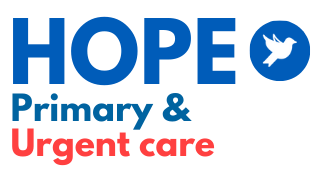The Role of Vaccinations in Preventive Health Care
Vaccinations have been one of the most effective tools in modern medicine, significantly reducing and even eradicating infectious diseases that once devastated communities. From childhood immunizations to adult booster shots, vaccines play a crucial role in preventing illness and safeguarding public health. Yet, despite their undeniable success, misinformation and vaccine hesitancy remain challenges.
In this article, we’ll explore how vaccines work, their role in preventive healthcare, the benefits they offer, and why maintaining high vaccination rates is essential for community well-being. We will also address some common concerns surrounding vaccinations, provide historical context, and discuss future advancements in vaccine technology.
How Vaccines Work: Strengthening the Body’s Natural Defenses
Vaccines prepare the immune system to fight infections before an individual is exposed to disease-causing organisms. They contain either weakened or inactive parts of a virus or bacterium, prompting the immune system to recognize and mount a defense against the pathogen.
Once exposed to a vaccine, the body produces antibodies—specialized proteins that neutralize threats. If the actual disease is encountered later, the immune system can respond swiftly, often preventing illness altogether or reducing its severity. This process helps individuals develop immunity safely, without experiencing the full effects of the disease itself.
The principle of vaccination is based on immunological memory. This allows the body to respond quickly upon subsequent exposure, effectively reducing the spread of infectious diseases. The efficacy of vaccines is well documented, with clinical trials and real-world studies consistently demonstrating their ability to reduce morbidity and mortality rates.
A Brief History of Vaccination
The concept of immunization dates back centuries, with early forms of vaccination practiced in ancient China and India. The first modern vaccine was developed in 1796 by Edward Jenner, who discovered that exposure to cowpox provided immunity to smallpox. His work laid the foundation for vaccine development, leading to the eventual eradication of smallpox in 1980.
Since Jenner’s discovery, vaccines have evolved significantly. The development of vaccines for polio, measles, hepatitis, and influenza has contributed to major public health achievements. Today, vaccine research continues to expand, with scientists working on innovative methods such as mRNA vaccines, which were instrumental in combating COVID-19.
The Impact of Vaccines on Public Health
The introduction of vaccines has drastically reduced cases of deadly diseases such as measles, polio, and diphtheria. According to the World Health Organization (WHO), vaccines prevent 3.5 to 5 million deaths annually worldwide. In the United States, routine immunization programs have helped control infectious diseases that once caused widespread mortality.
For example, measles, a highly contagious disease, was declared eliminated in the U.S. in 2000 due to widespread vaccination efforts. However, pockets of low vaccination rates have led to periodic outbreaks, underscoring the need for continued vigilance. Similarly, diseases such as whooping cough and mumps can make a resurgence if immunization rates decline.
Vaccines also play a crucial role in global health initiatives. Organizations such as the WHO and UNICEF have spearheaded immunization campaigns in developing nations, ensuring that life-saving vaccines reach vulnerable populations. These efforts have led to significant reductions in childhood mortality and improved overall life expectancy.
Economic Benefits of Vaccination
Beyond their role in protecting health, vaccines contribute significantly to economic stability. Preventing disease through vaccination reduces healthcare costs related to hospitalizations, medical treatments, and lost productivity.
A study published in Pediatrics estimated that for every $1 spent on childhood vaccines, the U.S. healthcare system saves over $10 in direct and indirect costs. When people stay healthy, they miss fewer days of work and school, reducing financial strain on families and improving overall productivity. Widespread immunization also decreases the burden on healthcare facilities, allowing resources to be allocated toward other pressing medical needs.
Employers and businesses also benefit from widespread vaccination. A healthy workforce means fewer sick days, greater productivity, and a stronger economy. The COVID-19 pandemic highlighted the economic impact of widespread illness, emphasizing the importance of maintaining high vaccination rates to prevent future disruptions.
The Concept of Herd Immunity: Protecting the Vulnerable
One of the most significant benefits of vaccinations is the concept of herd immunity. When a high percentage of a community is immunized, the spread of disease slows, providing indirect protection to those who cannot be vaccinated. This includes newborns, individuals with weakened immune systems, and those allergic to vaccine components.
Herd immunity is crucial in preventing outbreaks and protecting the most vulnerable members of society. However, it relies on maintaining high immunization rates. Declining vaccine uptake can compromise community-wide protection, leading to a resurgence of preventable diseases.
For instance, outbreaks of measles in various parts of the world have been linked to decreased vaccination coverage. This trend highlights the dangers of complacency and misinformation. To sustain herd immunity, public health agencies advocate for widespread immunization, ensuring that communities remain protected against infectious threats.
Addressing Vaccine Hesitancy
Despite their success, vaccines continue to face skepticism fueled by misinformation and distrust in medical institutions. Vaccine hesitancy, as identified by the WHO, is one of the top global health threats. Concerns about vaccine safety, misconceptions about ingredients, and fears of side effects contribute to reluctance.
Healthcare professionals play a critical role in addressing these concerns by providing accurate information and dispelling myths. Public health campaigns, community engagement, and transparent communication about vaccine benefits and risks are essential to building confidence and ensuring broad immunization coverage.
The rise of social media has made it easier for misinformation to spread, making it crucial for credible sources, such as healthcare providers and scientific institutions, to counteract false narratives. Encouraging open discussions, answering questions, and emphasizing the overwhelming scientific consensus on vaccine safety can help alleviate fears and encourage informed decision-making.
The Future of Vaccination: Advancements and Challenges
Vaccine technology continues to evolve, with research focused on developing more effective and accessible immunization methods. The advent of mRNA technology, as seen in COVID-19 vaccines, has opened new possibilities for rapid vaccine development against emerging diseases.
Scientists are also working on universal vaccines, such as a broad-spectrum flu vaccine, which could provide long-lasting protection against multiple strains. Efforts to enhance vaccine storage and distribution in remote areas aim to make immunization more accessible globally.
However, challenges remain. Variants of viruses, logistical hurdles in vaccine distribution, and ongoing misinformation campaigns pose threats to vaccination efforts. Continued investment in research, public health infrastructure, and education will be key in overcoming these challenges.
Vaccines as a Cornerstone of Preventive Health Care
Preventive healthcare focuses on stopping diseases before they occur, and vaccinations are a key component of this strategy. By reducing the incidence of infectious diseases, vaccines decrease the need for medical interventions, hospital stays, and long-term health complications.
Moreover, immunization programs have contributed to increased life expectancy, improved quality of life, and economic stability. Investing in vaccines is not only a personal health decision but also a collective responsibility that benefits society as a whole.
Conclusion: Stay Protected, Stay Healthy
Vaccinations are a proven and essential part of preventive healthcare, offering long-term protection against infectious diseases. Maintaining high immunization rates is crucial to preserving public health, preventing disease outbreaks, and ensuring the well-being of individuals and communities.
At Hope Primary & Urgent Care, we prioritize your health by providing essential vaccinations in a safe and supportive environment. Whether you need routine immunizations, travel vaccines, or booster shots, our team is here to help. Protect yourself and your loved ones—schedule your vaccination appointment today!
For more information or to book a visit, contact us at Hope Primary & Urgent Care.

